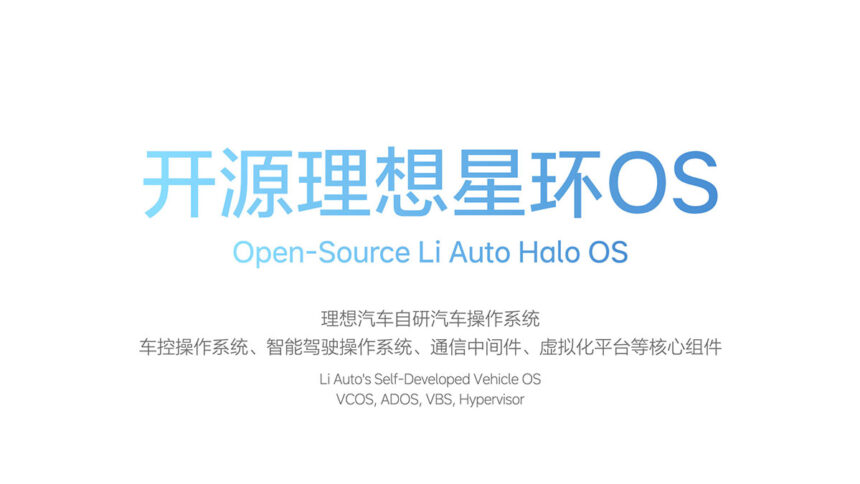Li Auto, a leading Chinese carmaker, has made a groundbreaking announcement by open-sourcing its in-house developed automotive operating system, Halo OS. This move is aimed at challenging the dominance of AUTOSAR, the closed-source operating system leader in the automotive industry.
Li Xiang, founder, chairman, and CEO of Li Auto, revealed this decision during a speech at a forum in Beijing. He emphasized that Li Auto is the world’s first automaker to open source a vehicle operating system, marking a significant milestone in the industry.
The development of Halo OS began in 2021, with a dedicated team of 200 researchers and over RMB 1 billion in R&D investment. This initiative was driven by the global chip shortage crisis in 2020 and the limitations posed by closed-source operating systems in chip adaptation and verification.
Compared to the widely used AUTOSAR operating system, Halo OS excels in core performance, security, cost efficiency, adaptability, and flexibility. Li Auto’s innovative cross-system architecture design enables multiple controller systems to work together, resulting in a response speed twice as fast as AUTOSAR and five times better response stability.
One of the key advantages of Halo OS is its ability to significantly reduce the “perception-decision-execution” time, enhancing active safety functions such as automatic emergency braking (AEB). The system’s performance is further bolstered by high-performance cryptographic algorithms, surpassing mainstream solutions by 4-8 times.
In terms of AI computing power virtualization, sensor device access latency, and storage resource utilization, Halo OS outperforms traditional solutions by reducing performance loss, latency, and resource consumption. Moreover, the system streamlines the chip adaptation and verification process, completing it within four weeks compared to the 3-6 month cycle under closed-source systems.
Li Auto foresees substantial cost savings for companies and consumers through the adoption of Halo OS. By open-sourcing the operating system, the automotive industry is expected to save RMB 10 billion to 20 billion in annual R&D resources and overcome technical barriers associated with closed-source systems.
The availability of Halo OS in the open-source community is slated for the end of April, offering core components such as the vehicle control operating system, smart driving operating system, communication middleware, and virtualization platform. This strategic move by Li Auto reflects the company’s commitment to advancing automotive technology and fostering innovation in the industry.
In a similar vein, Nio, a local counterpart of Li Auto, introduced its own automotive operating system, SkyOS, in September 2023. Positioned as China’s first intelligent electric vehicle operating system, SkyOS covers various domains including vehicle control, smart driving, cockpit, and mobile Internet. Nio’s continued development of SkyOS underscores the company’s dedication to enhancing the driving experience and staying at the forefront of technological advancements in the electric vehicle sector.
Overall, the open-sourcing of Halo OS by Li Auto marks a significant milestone in the automotive industry, paving the way for enhanced performance, cost efficiency, and innovation in vehicle operating systems. As the industry continues to evolve, open-source initiatives like Halo OS and SkyOS are set to drive progress and shape the future of automotive technology.







